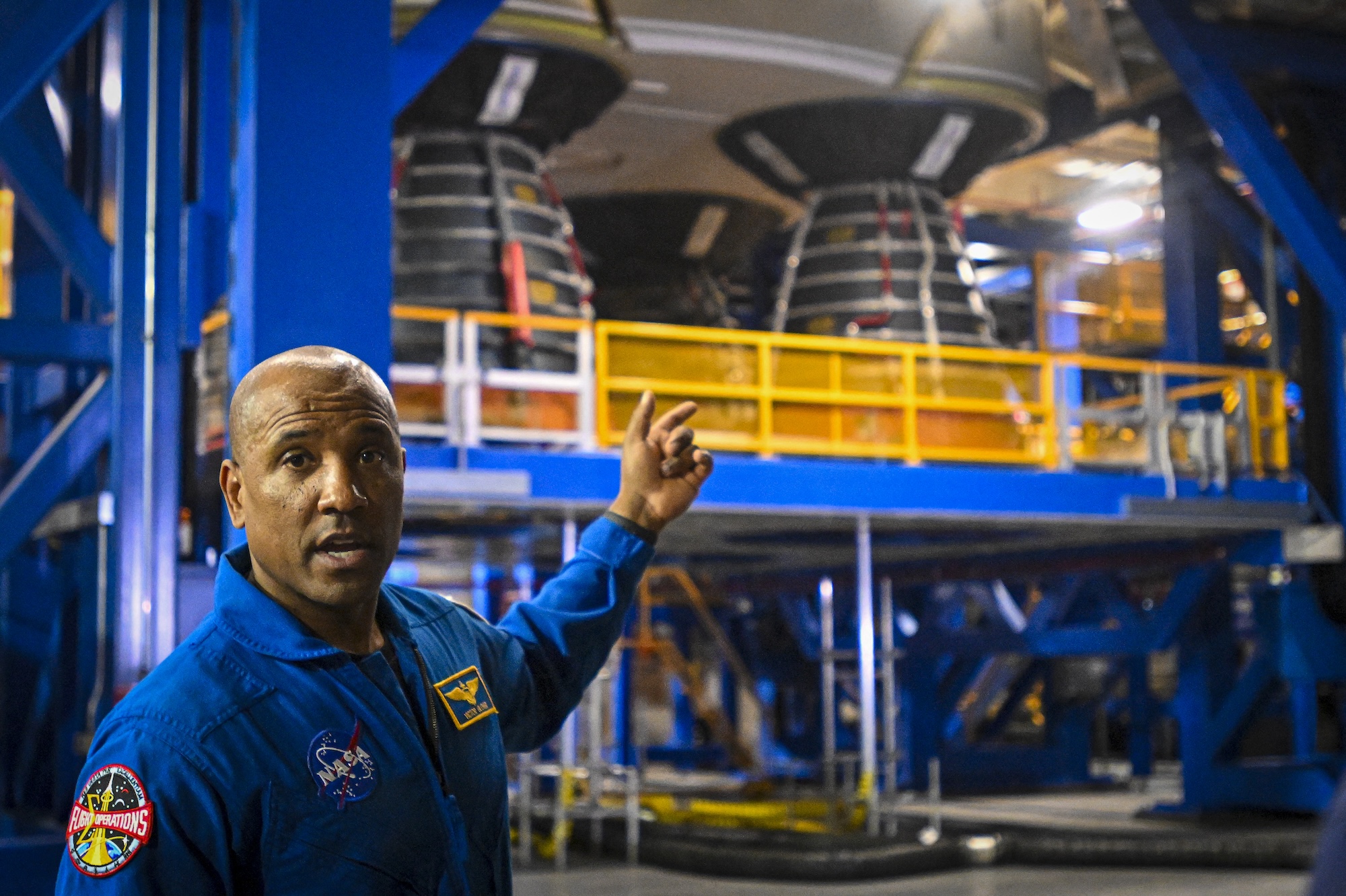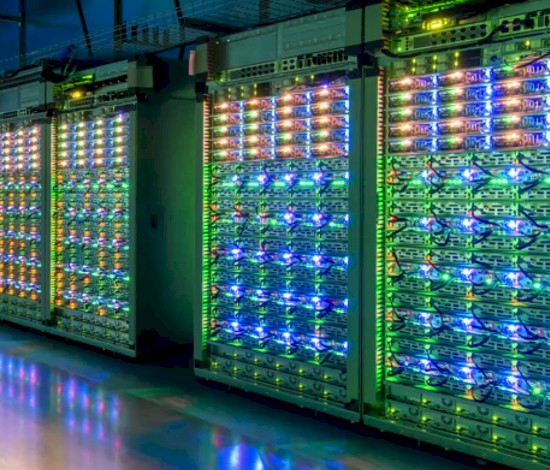Thousands of workers across the country, primarily in Florida, Texas, and Alabama, are still reporting for duty to keep Artemis II’s launch date early next year. In many cases, they’re not getting their paychecks. It’s not clear how long NASA can sustain this situation without delaying Artemis II’s departure for the Moon.
What is apparent, officials say, is the government shutdown is creating inefficiencies that, if left unchecked, will inevitably impact the Artemis II schedule. Just look at what’s happening with air traffic controllers across the United States as many of them are forced to take second jobs due to missed paychecks. The funding stalemate has contributed to widespread air traffic controller shortages and flight delays.

NASA astronaut and Artemis II pilot Victor Glover speaks to the press during an Artemis media event in the Vehicle Assembly Building at Kennedy Space Center, Florida, on December 16, 2024. Credit: Miguel J. Rodriguez Carrillo / AFP via Getty Images
Kirk Shireman, vice president and program manager for Orion at Lockheed Martin, said Tuesday that the shutdown initially created a “nuisance” for teams working on the Artemis II mission. But it won’t be just a nuisance forever.
“I do think we’re rapidly approaching the point where it will be a significant impact, and it’s more to do with overall infrastructure,” Shireman said in response to a question from Ars at the von Braun Space Exploration Symposium in Huntsville, Alabama.
“Some of you flew here,” he said. “I suspect if you weren’t delayed coming here, you’re probably going to be delayed going home, even in the airport going through TSA. Everything that affects people’s lives is affected by the government, and when it’s shut down, it’s going to have its toll, and it’s probably going to be these secondary impacts that ultimately do it.”
Shireman has some experience with government shutdowns. He was a longtime NASA civil servant, rising in the ranks to become manager of the International Space Station program before retiring from government in 2020 and taking a position at Lockheed Martin. In his time at NASA, Shireman shepherded the ISS program through a 35-day government shutdown in late 2018 and early 2019.
.png)




